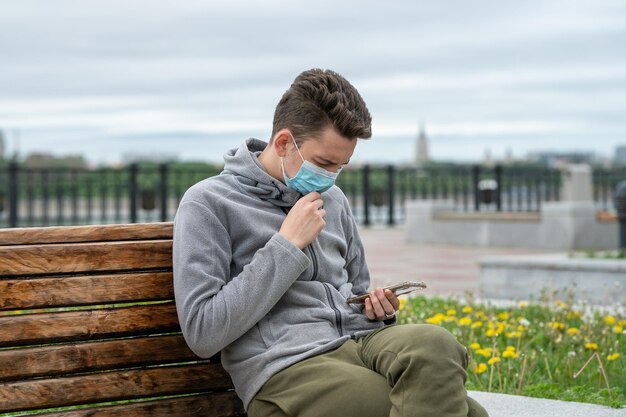How Does Pneumonia Develop and What Should You Know?
Breathing is one of life's simplest and most vital actions. We often take it for granted until something goes wrong. Pneumonia can quickly bring the importance of clear, unhindered breathing into sharp focus. Whether it's slipping in like a shadow or crashing into your life, understanding how pneumonia develops is crucial. By exploring its causes, risk factors, and prevention methods, you're better armed to keep your lungs healthy and clear.
Understanding Pneumonia: More Than Just a Cough
Pneumonia is an infection that inflames the air sacs in one or both lungs. These air sacs may fill with fluid or pus, causing symptoms such as a cough with phlegm, fever, chills, and difficulty breathing. It can vary in seriousness, from mild to life-threatening, and affects people of all ages.
The Causes of Pneumonia
There are several causes of pneumonia, each associated with different pathogens:
- Bacterial Pneumonia: Often caused by the bacterium Streptococcus pneumoniae. This type can occur on its own or after a person has had a cold or the flu.
- Viral Pneumonia: Caused by various viruses, including influenza. Viral pneumonia tends to be less severe than bacterial, but can pave the way for bacterial pneumonia.
- Mycoplasma Pneumonia: Caused by Mycoplasma pneumoniae. This often causes milder symptoms and is sometimes called "walking pneumonia."
- Fungal Pneumonia: Primarily affects those with weakened immune systems and is caused by fungi from the soil or bird droppings, such as Aspergillus.
The Path to Pneumonia: How Infection Occurs
Pneumonia typically occurs when the immune system is compromised or overwhelmed by germs. Here are some common pathways:
- Inhalation: Droplets from a sneeze, cough, or breath of an infected person can carry infectious agents that, when inhaled, settle in the lungs.
- Aspiration: Germs in your mouth could reach the lungs if, for example, you accidentally inhale food, drink, vomit, or saliva.
- Bloodstream Infection: Sometimes, the pneumonia-causing organism can spread from another part of the body through the bloodstream.
Risk Factors: Why Some Are More Susceptible
While anyone can catch pneumonia, some factors increase vulnerability:
- Age: Those over 65 or younger than 2 are at higher risk.
- Chronic Diseases: Conditions like asthma, diabetes, or heart disease can predispose one to pneumonia.
- Weakened Immune System: HIV/AIDS, chemotherapy, or organ transplants can compromise immunity.
- Hospitalization: Hospital patients, particularly those on ventilators, are at higher risk due to the risk of hospital-acquired pneumonia.
- Lifestyle Choices: Smoking cigarettes damages your body's ability to defend against respiratory infections.
Identifying Pneumonia: Symptoms and Signs
Recognizing pneumonia is crucial for seeking timely help:
- Persistent Cough: Often accompanied by phlegm.
- Fever and Chills: Frequently, a high fever can develop.
- Chest Pain: Especially when breathing or coughing.
- Shortness of Breath: Due to the filling of air sacs with fluid.
- Fatigue: General malaise and tiredness.
When to Seek Medical Attention
If you or someone you know experiences severe breathing difficulties, confusion, persistent fever, or sudden chest pain, it’s imperative to consult a healthcare provider. Ignoring such symptoms could lead to serious complications.
Maintaining Lung Health: Prevention and Care
While pneumonia can be serious, steps can be taken to prevent its onset:
Vaccination: Your First Line of Defense
- Pneumococcal Vaccination: Recommended for children under 2, adults over 65, and those with certain health conditions.
- Influenza Vaccine: Reduces the risk of flu and subsequently, viral pneumonia.
Healthy Habits for Strong Lungs
- Quit Smoking: Smoking cessation is vital as tobacco impairs lung function.
- Regular Exercise: Enhances respiratory efficiency and immune function.
- Good Hygiene: Regular handwashing and respiratory hygiene can prevent infections.
Safe Practices in Daily Life
- Healthy Diet: Balanced nutrition supports a robust immune system.
- Environmental Considerations: Minimize exposure to pollutants and allergens.
Communicating About Pneumonia: Community Awareness and Education
Education and awareness are potent tools in combating pneumonia. Here's how you can help:
- Spread Awareness: Educate friends and family about vaccination and prevention methods.
- Community Involvement: Participate in community health drives or campaigns focusing on lung health.
- Open Dialogues: Discuss symptoms and prevention with healthcare professionals during regular check-ups.
Looking Ahead: Empowerment Through Knowledge
Understanding pneumonia is empowering. It puts the tools for proactive health management directly into your hands. By recognizing risk factors and knowing symptoms, you’re well-equipped to act swiftly if pneumonia strikes. However, the strongest weapon remains prevention; by incorporating healthy practices into your everyday routine, you can minimize risk and enjoy better respiratory health.
Stay informed, stay healthy, and breathe easy—those are the key takeaways. Spread this knowledge and help others learn how to shield themselves from pneumonia, championing both awareness and action.
Quick Reference: Pneumonia Prevention and Recognition 💡
- 👫 High-Risk Groups: Anyone over 65 or under 2, smokers, and those with chronic illnesses.
- 🦠 Common Causes: Bacterial, viral, mycoplasma, and fungal pathogens.
- 🚨 Key Symptoms: Persistent cough, fever, chest pain, and shortness of breath.
- 💉 Preventive Measures:
- Get vaccinated (pneumococcal and flu vaccines).
- Practice good hygiene—wash hands and cover mouth when coughing.
- Maintain a healthy lifestyle with exercise and a balanced diet.
- 🏥 Seek Help If: Extreme difficulty breathing, confusion, high fever, or persistent chest pain occur.
By understanding and sharing these insights, you contribute to healthier communities and more informed individuals. Always remember to seek professional medical advice for accurate diagnosis and treatment options when dealing with health issues like pneumonia.

Related Articles
- a Typical Pneumonia
- Can a Cold Turn Into Pneumonia
- Can a Sinus Infection Turn Into Pneumonia
- Can Amoxicillin Cure Pneumonia
- Can Amoxicillin Treat Pneumonia
- Can Baby Oil Cause Pneumonia
- Can Bronchitis Turn Into Pneumonia
- Can Covid Turn Into Pneumonia
- Can Doxycycline Treat Pneumonia
- Can Flu Turn Into Pneumonia
